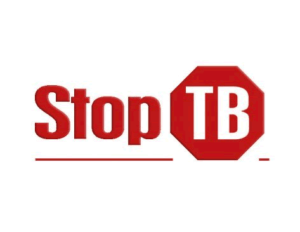It is a crime to sit and watch TB claim 4,000 lives daily – HFFG
 Ms Cynthia Atuobi, the Project Officer at Hope for Future Generations (HFFG), a local non-governmental organisation (NGO), has called on the governments to invest funds necessary to end Tuberculosis (TB) in Ghana.
Ms Cynthia Atuobi, the Project Officer at Hope for Future Generations (HFFG), a local non-governmental organisation (NGO), has called on the governments to invest funds necessary to end Tuberculosis (TB) in Ghana.
She said active investment in TB-affected communities and civil society would ensure their meaningful engagement in all aspects of the TB response, including access to people-centred prevention, diagnosis, treatment and care, and psychosocial, nutritional and socio-economic support.
Ms Atuobi, in a presentation during a district level stakeholders engagement of the “TBImpact Ghana” project at Aflao on Thursday, said the world could not afford to look on for the disease to destroy thousands of lives daily.
It was organised by HFFG with funding support from Stop TB Geneva, under the Challenge Facility for Civil Society Round 11 project.
“It is a social crime to sit and watch a disease that is both preventable and curable to rob the lives of 4,000 people every day including 700 children,” she said.
“Each year, some 10 million people fall sick with the disease out of which some 4,000 people die daily. That totals around 1.4 million people every year.”
Actions to be taken should include leveraging COVID-19 (bidirectional screening and testing) as a strategic opportunity to get people tested.
“To end TB in Ghana, we need a collaborative effort of CSOs and community members, working hand in hand with national partners/associates and other key players,” she said.
HFFG, National TB Control Programme (NTP), and Young Health Advocates Ghana successfully implemented the first phase of the Challenge Facility Round 10 in three selected districts in the Greater Accra, Central, and Volta regions.
The second phase; Challenge Facility Round 11, is a year-long project aimed at strengthening community systems to scale-up community-led response interventions for TB control to six more districts (three from each region) and it is being implemented with NTP, Stop TB Partnership, and TB Voice Network.
Ms Doris Lomokie Dornor, Project Coordinator, HFFG, told the Ghana News Agency that for the gap between “the commitments and the reality” to be closed the political declaration on the fight against the disease must match the actual happenings on the ground.
“Everybody must be involved in the fight against TB. TB anywhere is TB everywhere because we all breathe a common air.”
“I, therefore, recommend as many as 10,000 Ghanaians to download the app, TBImpactGH, through which well documented information on TB is accessible. We must all be concerned.”
Mr Wisdom Klenyuie, Volta Regional TB Coordinator, explained that Keta, Ketu South and Hohoe were identified as municipalities recording high TB cases, with some reported cases of drug resistant TB, thus, their selection.
He expressed the hope that an end to TB by 2030 was possible with the right strategies in place.
Mr David Agbokpe, the Ketu South Municipal Director of Health, was grateful for the inclusion of the municipality in the project.
He underscored the role of civil society in healthcare provision and noted that the project would help in TB fight in Ketu South.
Mr Gilbert Akpaku, a TB advocate, asked the public to eschew stigmatisation and discrimination against TB patients and rather report to health facilities when they start to cough with sputum for diagnosis.
“This will allow for early detection and treatment. No need to be scared because TB is curable… I have been there.”
Source: GNA
